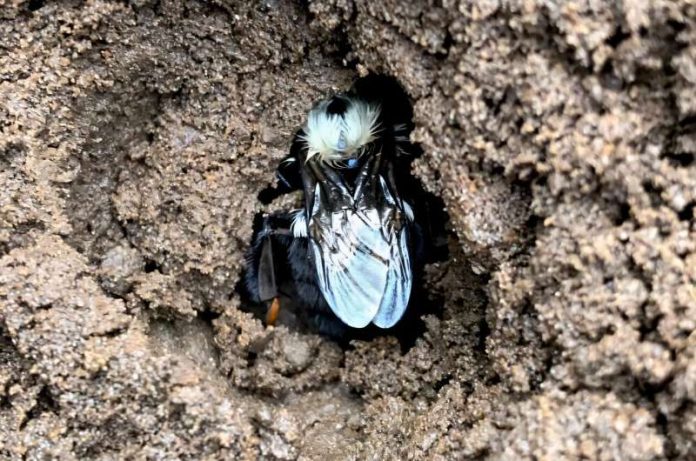Researchers at the University of Guelph have made an alarming discovery that poses significant concerns for bumblebee health, survival, and reproduction. In a recent study, environmental sciences researchers Drs. Nigel Raine and Sabrina Rondeau found that bumblebee queens show a surprising preference for hibernating in soil contaminated with pesticides rather than in clean soil—a behavior that remains poorly understood.
“We wanted to see if these bumblebee queens exhibited avoidance behavior that might reduce their risk of harm from pesticide exposure in the field,” Dr. Raine stated. “But these results were alarming.”
The researchers conducted field experiments where newly emerged queens of the common eastern bumblebee (Bombus impatiens) were allowed to fly freely within outdoor enclosures to mate and choose hibernation sites for the winter. The choice was between clean soil and soil contaminated with one of five common pesticides, including insecticides and fungicides, at varying concentrations.















